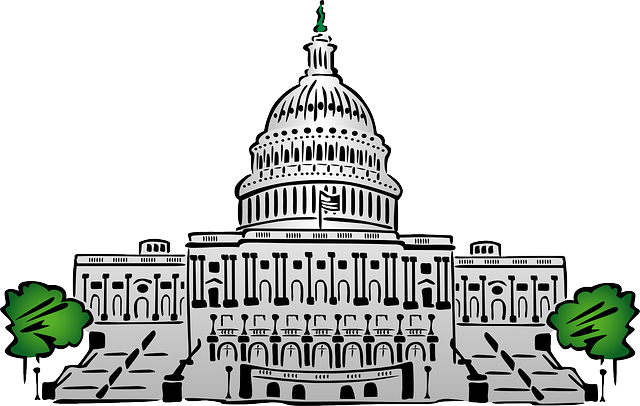
When you receive a settlement from a personal injury case, you might wonder if the government can take your settlement money. This is a complex issue, involving various legal and tax implications. Understanding these aspects on which personal injury settlements depend is crucial. It helps to protect your settlement funds and ensure you comply with all relevant laws.
Why Does the Government Take Personal Injury Settlements?
Before you worry about the settlement agreement, you should look into other legal details. The government may take a portion of your personal injury settlement for several reasons:
- Back Taxes: If you owe back taxes to the IRS, the government has the authority to levy your settlement funds to cover your tax debt.
- Government Benefits: Receiving a large settlement can affect your eligibility for need-based government benefits, such as Supplemental Security Income (SSI) or Medicaid.
- Legal Obligations: If you have outstanding legal obligations, such as child support arrears or liens, the government or other entities can claim a portion of your settlement.
Do I Pay Taxes on Money from a Legal Settlement?
Whether you pay taxes on your settlement money depends on the nature of the compensation. Personal injury settlements can be complex.
Therefore, tax implications vary based on the type of damages awarded. So, if you’re you’re wondering “Do I have to pay tax on my car accident settlement money?” you probably do. But how does it work? Let’s discuss.
How Are Personal Injury Settlements Taxed?
Personal injury settlements are generally divided into two categories: compensatory damages and punitive damages.
- Compensatory Damages: These are intended to compensate for losses such as medical expenses, lost wages, and pain and suffering. Compensatory damages for personal physical injuries or sickness are typically non-taxable.
- Punitive Damages: These are awarded to punish the defendant for egregious conduct and are considered taxable income.
When Are Personal Injury Settlements Non-Taxable?
Under IRS rules, compensatory damages for personal physical injuries or physical sickness are non-taxable. This includes compensation for:
- Medical Expenses: Reimbursement for medical bills related to your injury.
- Lost Wages: Compensation for lost income due to your inability to work as a result of your injury.
- Pain and Suffering: Damages awarded for physical pain and emotional distress directly tied to your physical injury.
When Are Personal Injury Settlements Taxed?
Certain parts of a personal injury settlement may be considered taxable:
- Punitive Damages: Always taxable, regardless of the nature of your injury.
- Interest on Settlement Funds: If your settlement includes interest, that portion is taxable.
- Compensation for Emotional Distress: If not directly related to a physical injury, it may be taxable.
- Lost Wages in Non-Physical Injury Cases: Compensation for lost income due to non-physical injuries may be subject to tax.
Will the IRS Take My Settlement Check If I Owe Back Taxes?
If you owe back taxes, the IRS can take your settlement check to satisfy your tax debt. The IRS has the authority to levy various types of income and funds, including personal injury settlements. However, this is subject to certain limitations and procedures. The IRS must follow specific legal steps before levying your settlement funds.

How Can I Resolve My Back Taxes to Keep My Settlement Money?
If you owe back taxes and want to protect your settlement money, consider the following steps:
- Payment Plan: Negotiate a payment plan with the IRS to pay off your back taxes in installments.
- Offer in Compromise: Propose an Offer in Compromise to settle your tax debt for less than the full amount owed.
- Consult a Tax Professional: Seek advice from a tax professional or experienced attorney to explore your options and ensure compliance with tax laws.
How to Prevent the Government From Taking Your Personal Injury Settlement?
Preventing the government from taking your personal injury settlement involves proactive measures:
Settle Tax Debts:
Address any outstanding tax debts before receiving your settlement.
Plan for Government Benefits:
Understand how your settlement may affect your eligibility for need-based government benefits and take steps to protect your benefits.
Create a Special Needs Trust:
If you receive government benefits like SSI or Medicaid, consider setting up a special needs trust to preserve your eligibility while receiving settlement funds.
How to Protect Your Benefits?
Receiving a personal injury settlement can impact your eligibility for certain government benefits. Here’s how to protect your benefits:
Supplemental Security Income (SSI):
SSI is a need-based program, and receiving a large settlement can disqualify you from benefits. To protect your SSI benefits, consider setting up a special needs trust, which allows you to receive settlement funds without affecting your eligibility.
Medicaid:
Similar to SSI, Medicaid eligibility is based on financial need. A special needs trust can help preserve your Medicaid benefits while allowing you to access your settlement funds for specific expenses.
Social Security Disability Insurance (SSDI):
SSDI is not need-based, so receiving a settlement typically does not affect your benefits. However, it’s essential to report any changes in your financial situation to the Social Security Administration.
How an Attorney Can Help You
Dealing with the complexities of personal injury settlements, taxes, and government benefits can be overwhelming. An experienced attorney can provide invaluable assistance in various ways to ensure that you maximize your settlement and protect your financial interests. Here’s how an attorney can help:
Legal Guidance:
An attorney can help you understand the specific circumstances of your case and how settlement funds may be taxed.
Protect Your Rights:
By negotiating settlement terms and preventing unfair deductions, an attorney ensures that your rights are safeguarded throughout the settlement process.
Tax Planning and Compliance:
An attorney can minimize your tax liabilities by structuring your settlement effectively and ensuring compliance with tax laws, collaborating with tax professionals for comprehensive advice.
Special Needs Trusts:
For those receiving need-based benefits, an attorney can help set up a special needs trust to preserve eligibility while allowing access to settlement funds for approved expenses.
Negotiating with the IRS:
If you owe back taxes, an attorney can negotiate payment plans or settlements with the IRS and work to protect your settlement funds from being levied.
Litigation Support:
In case of disputes over your settlement or tax issues, an attorney provides litigation support to advocate for your rights and resolve conflicts efficiently.
Protect Your Benefits:
Attorneys advise on maintaining eligibility for need-based benefits despite a large settlement, and they provide strategies to mitigate any negative effects on benefits like SSI, Medicaid, and SSDI. They help you navigate how your settlement impacts these benefits.
Financial Planning:
Beyond legal matters, an attorney can assist with investment advice and future planning, ensuring your settlement funds are managed wisely for long-term financial stability.
Protect Your Settlement Money with BLG
Understanding whether the government can take your settlement money is crucial for protecting your financial interests.
While compensatory damages for personal physical injuries are generally non-taxable, other portions of your settlement, such as punitive damages and interest, may be subject to tax.
If you owe back taxes or receive need-based government benefits, proactive measures like settling tax debts, planning for benefits, and setting up special needs trusts can help safeguard your settlement funds.

Don’t Let The Government Take Your Settlement Money
Don’t let the government take what’s rightfully yours. At BLG, we specialize in safeguarding your settlement funds and ensuring you receive the full compensation you deserve.
Our experienced attorneys are here to guide you through the complexities of personal injury settlements, tax implications, and protecting your government benefits.
Contact us today for a free consultation.




